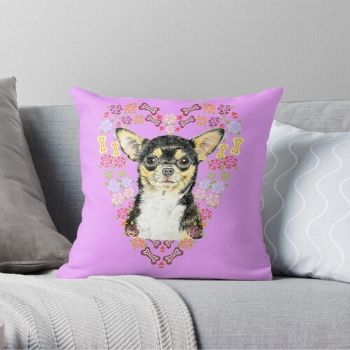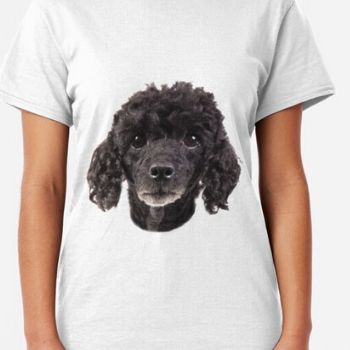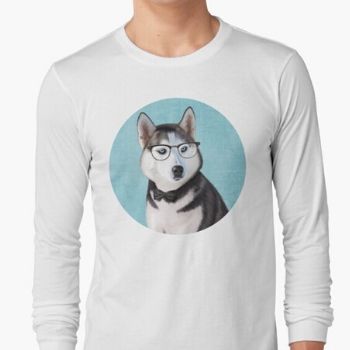Are you interested in a particular type of healthiest dog breeds (large, small, that don’t bark, etc)?
Then use the table of contents below to jump to the most relevant section. And you can always go back by clicking on the black arrow in the right bottom corner of the page. Also, please note that some of the links in this article may be affiliate links. For more details, check the Disclosure section at the bottom of the page.
Here's what we'll cover:
- What is the healthiest dog breed?
- Healthiest and easiest dog breeds
- Healthiest big dog breeds
- Healthiest small dog breeds
- Healthiest toy breed dogs
- Healthiest dog breeds for families
- Healthiest dog breeds for seniors
- Healthiest guard dog breeds
- Healthiest hypoallergenic dog breeds
- Healthiest dog breeds mixes
- Healthiest and longest living dog breeds
- Smartest and healthiest dog breeds
- Cutest healthiest dog breeds
- Healthiest dog breeds that don’t shed
- Healthiest dog breeds that don’t shed and stay small
- Healthiest dog breeds that don’t bark
- Least healthy dog breeds
What is the healthiest dog breed?
There are no two dogs alike. Each is different in character, size, and health. But I’ve tried to source as much information as I possibly could to identify the healthiest breeds across all possible categories – small or large, best for families with kids or seniors, best guards and the ones that don’t bark at all. This list features Beagle, Chihuahua, Border Collie, Havanese, Poodle, German Shepherd, and many more.
Although it is not absolute, some breeds are known to have longer lifespans than others. Although PedMD did a good job in figuring out the “average” – which is, apparently, is between 8 to 11 years, depending on the breed’s size. (So unfair to proud dog owners, imagine this, cats’ average lifespan is 15.1 years!)
To be honest, when I started working on this article, I found that even the most influential media in the space are quite controversial in their ratings of the most and the least healthy breeds. It wasn’t uncommon to see the same breeds in both of those.
But even though, writing this was challenging, I was up to it. My approach was to compile as many ratings as possible and pick the breeds that were mentioned the most in each category.
So, I hope you’ll find the results useful. Let’s dig right into it.

Healthiest and easiest dog breeds
Beagle
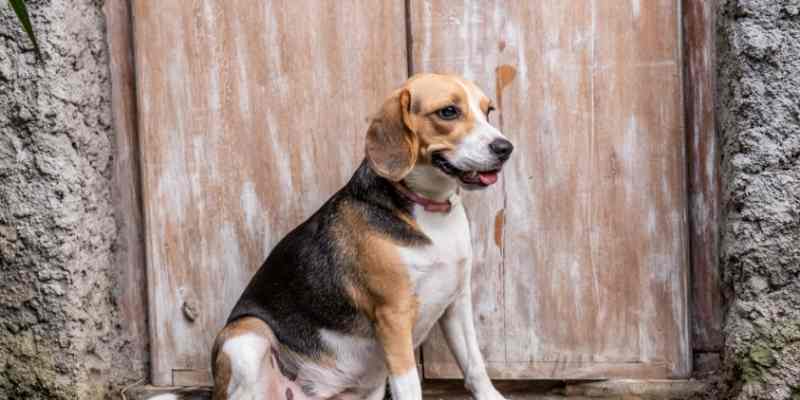
One of the easiest dog breeds to own are beagles – easy-going and friendly. The American Kennel Club (AKC) characterize these animals as “friendly,” “merry,” and “curious.”
Furthermore, the beagles are genuinely a great breed of dogs. In reality, the personality of the beagle and their lack of predisposition to genetic diseases, explains why scientists prefer beagles for controversial animal experimentation.
They may yell a lot, but it’s not because they’re in distress. Family-friendly Beagles are resistant to most of the significant health issues that trouble other canine breeds, including heart diseases and hip dysplasia.
Beagles are warm and excellent with children, making them exceptional family dogs. They are a very healthy breed and can live for about 15 years if well cared for. One precaution though: Beagles love to bark and hiss, so they have to be trained to reduce that.
You might also like:
- Dog Food Samples: How to Get More Freebies for Your Pup?
- Top 9 Dream Gifts for Dog Lovers: From Dog Art to Pup’s Twin
- Dog Subscription Boxes: 5 Reasons to Get In and Is There Really an Option Under $10?

Pembroke Welsh Corgi
Cute Corgi puppy stickers. Get it here.
The corgi— Queen Elizabeth II’s favorite — will undoubtedly steal your heart if you fancy an easy dog with a lot of character. The AKC defines this dog breed as “smart,” “affectionate,” and “alert.” These little pups are active, but they can accustom to just about any living circumstances as long as they get regular training.
Corgis have a medium-long hair that needs frequent weekly grooming, plus an occasional bath. They are very obedient and trainable. These dogs are comfortable in any climate and are amongst the healthiest breeds who live up to about 13 years.
Want to check out more easiest dog breeds? Here’s our list of the most well behaved dog breeds for your inspiration.

Healthiest big dog breeds
German Shorthaired Pointer
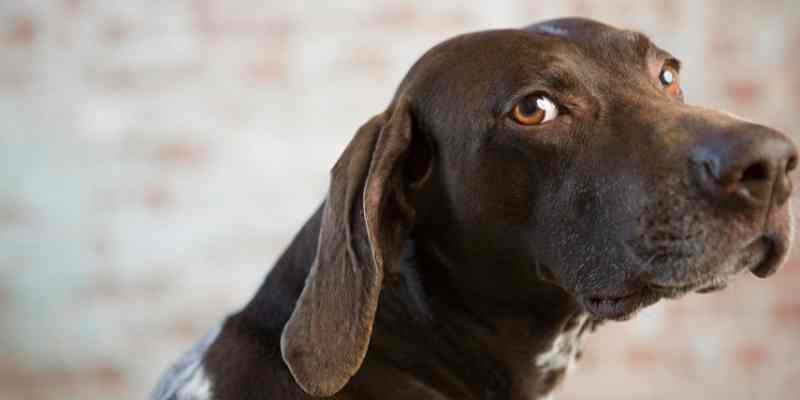
A real hunting and gun dog, the German Shorthaired Pointer (GSP) is smart, courageous, powerful, and playful. It needs a lot of training and attention. But if well taught, the GSP is the ideal companion for owners with an active lifestyle and can live up to 12 to 14 years. An active breed that needs a lot of exercising, German Shorthaired Pointers will require outdoor access and, like all breeds, want some daily mental stimulation.

Rottweiler

Despite the adverse attention received in television and movies depicting this breed as “mean” the Rottweiler keeps being popular. And for a reason: in reality, the Rottweilers are smart, kind, loyal, and thoughtful about his family. They’re calm and tender like a giant teddy bear. Notwithstanding their fame of being aggressive, these dogs will only display hostility if they feel their human master is in danger.
Because of the size Rottweilers are usually recommended to experienced dog-owners though. They can reach up to 130lbs and live for about 11 years.

Healthiest small dog breeds
Cairn Terrier
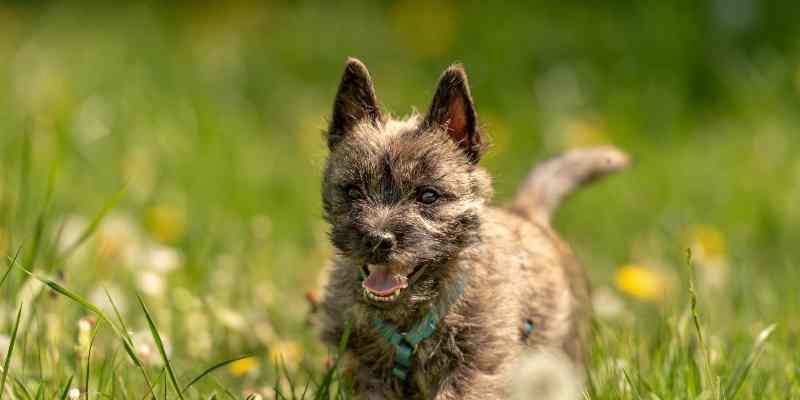
These upbeat dogs tend to be busy with self-appointed tasks. They’re feisty, particularly with other dogs, and they don’t do well with cats. They may also need to be supervised around toddlers. Cairn Terrier breed came from Scotland and was developed to be a rodent hunter. This hearty breed is a real workhorse considering its size. There is not much that can bring this dog down even though they are still susceptible to certain diseases. The Cairn terrier yet has been known as one of the healthiest dog breeds with an average lifespan of 12-15 years.

Dachshund

Dachshunds are very attached to the owner and family but can be aggressive about unknown. They are bold, courageous, and curious and also fond of chasing game, digging, hunting, and following the scent. Named an American Kennel Club “icon,” the short legs and long body of this breed are responsible for the nickname “wiener.” The daily workout could assist you in keeping your Dachshund healthy until his 20th birthday.

Healthiest toy breed dogs
Chihuahua
Chihuahua throw pillow. Get it here.
These tiny dogs can thank their longevity to not being susceptible to genetic diseases. Not exceeding 6 pounds Chihuahua’s are known to be the smallest breed in the globe and are smart, faithful, and among the healthiest dog breeds with an average lifespan of 14 to 18 years. A smooth-coated Chihuahua needs the least grooming, while long-haired types need brushing two to three times a week. As they are tiny, they only need a short daily work to fulfill their exercising requirements.
Havanese

Maybe not as small as Chihuahua but still the healthiest breed among other “toy” breeds. Havaneses’ owners will admit that these dogs are nearly perfect. Not only are they hypoallergenic and low-shedding, but they are also extremely affectionate, friendly, and intelligent, making them ideal for individuals with kids or always dreamt of an entertaining dog rather than hunter or guard. Havanese can weigh 7-13 pounds and live between 12 to 14 years.

Healthiest dog breeds for families
Border Collie
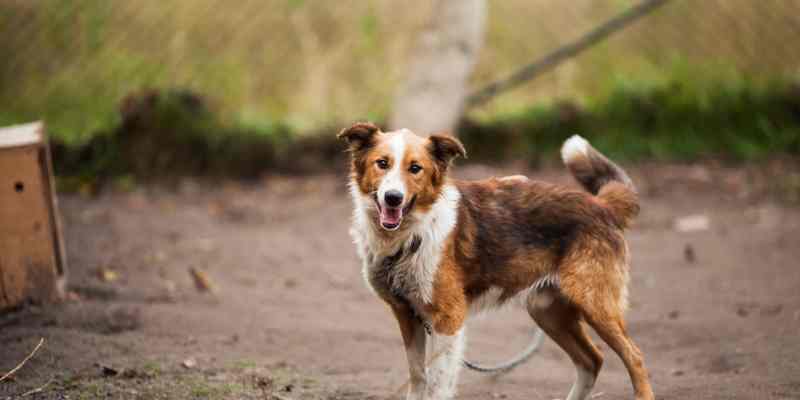
Collies are amongst the smartest breeds, and if you’ve ever watched Lassie, you understand why. Advanced DNA testing has helped eliminate many of the genetic conditions that used to trouble Border Collies. Another high-energy breed is known for its liveliness, willingness to please, smarts, high trainability, and obedience, It’s one of the healthiest breeds with a lifespan of 10 to 14 years.
Poodle
Cute Poodle t-shirt. Get it here.
The Poodle is a small, lively domesticated dog, renowned for its dense, tightly curled coat and passionate nature. The original purpose of the Poodle was as a water hunting dog. It was originated in Germany and significantly developed by the French.
Poodles are friendly and do well with children and other animals. They may look dainty, but they are very healthy animals that are unlikely to experience many of the typical canine illnesses, including epilepsy, bladder stones, and degenerative myelopathy. These animals can live a healthy life up to about 14 years of age if treated right – with a suitable diet and training.
Curious to learn more about poodle? They are awesome indeed! We have more tips about grooming in our guide on poodle’s hair care.

Healthiest dog breeds for seniors
Labrador Retriever

Labs are known as smart and friendly dogs. And these characteristics make them great for seniors if they can get the practice as much as they require. Sticking these big dogs in a tiny apartment may not be good, but if you have a good lawn, they will be very pleased. This breed is loving, supportive, and making an excellent watchdog.
Labradors are some of the most friendly animals you’ll ever meet. These dogs are brilliant and love to please, which is why they are so simple to train. They enjoy playing time and are fantastic with children and other animals. These pups stay playful within the course of their lives and can live up to about 13 years.

Healthiest guard dog breeds
Australian Shepherd
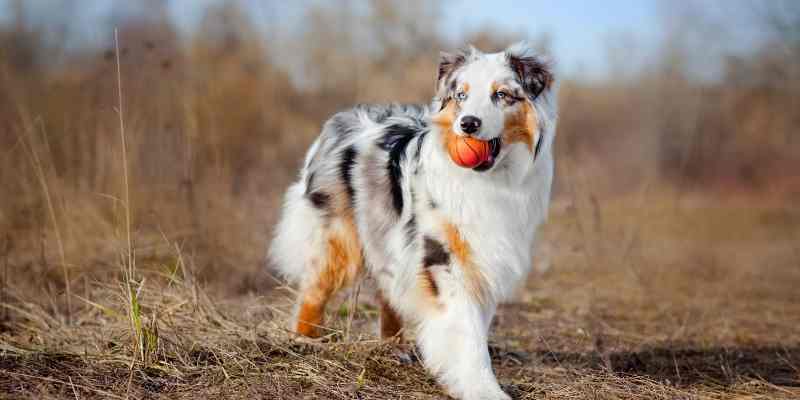
The Australian Shepherd, a lean, hard ranch dog, is one of those “only in America” anecdotes: a European breed developed in California by the manner of Australia. With comparatively few claims for bone-related injuries as well as coat and skin-related diseases, Australian Shepherds are also mostly healthy.
An all-purpose ranch dog, Australian Shepherds, are obedient and active and require frequent practice and mental stimulation.
German Shepherd
German Shepherd puppy stickers. Get it here.
Generally regarded the best all-purpose worker of dogkind, the German Shepherd Dog is a huge, agile, muscular dog of noble personality and advanced intelligence. The German Shepherd is genuinely the pleasure for a dog lover, loyal, confident, brave, and consistent. German Shepherds create excellent watchdogs because they defend their family.
These dogs are vigorous and good with children. They are smart and can be trained quickly. These animals are very healthy and can live up to 11 years with the correct nutrition.
If you are seriously considering making German Shepherd a part of your family have a look at this ultimate guide on this breed training.

Healthiest hypoallergenic dog breeds
Havanese

Havanese made not only the toy section of this rating… On top of being super cute and small, this breed is also hypoallergenic and low-shedding.
It developed from its status as a spoiled lap-dog for the aristocracy into a family friend qualified as a watchdog, playmate of the child and herder of the family (or even poultry if you happen to own some). And again, compared to other dogs of the same size Havanese among healthy breeds.
Labradoodle is also amongst the healthiest hypoallergenic dog breeds, but let’s jump to the next section to learn more about it.

Healthiest dog breeds mixes
Mixed breed dogs are usually among the healthiest with a distinctive genetic markup and a reduced rate of inbreeding. The latest research showed that mix breed dogs were considerably less probable to create ten genetically-based illnesses, including several types of heart disease, allergic skin disease, musculoskeletal issues, and hyperthyroidism.
However, the newest new “designer dogs” are quite recent, so there’s not that many specific, cut-in-stone data on their health, habits, temper, etc.
But so far it’s getting clearer that Labradoodles are amongst the healthiest mixes out there.
Labradoodle
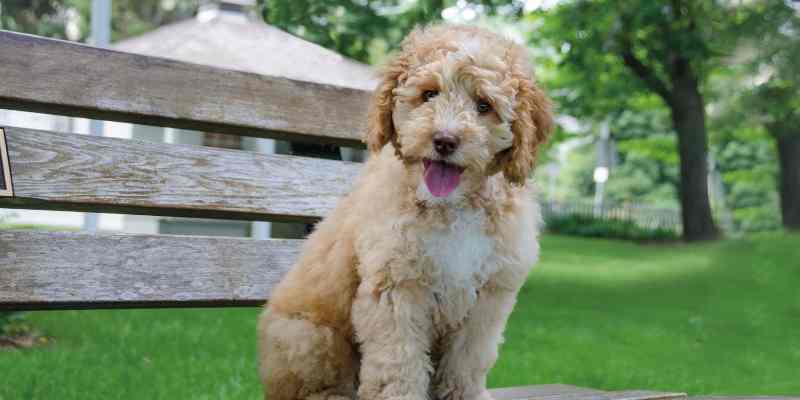
A mix of a Poodle and Labrador Retriever, the Labradoodle was initially created as a hypoallergenic breed. However, it quickly became known for being intelligent, friendly, and low-shedding. This mix among those with only a few tendencies for bone-related wounds and coat/skin-related conditions. The coat of the breed should be frequently shampooed and brushed and clipped twice a year at the very least.

Healthiest and longest living dog breeds
Australian Cattle Dogs
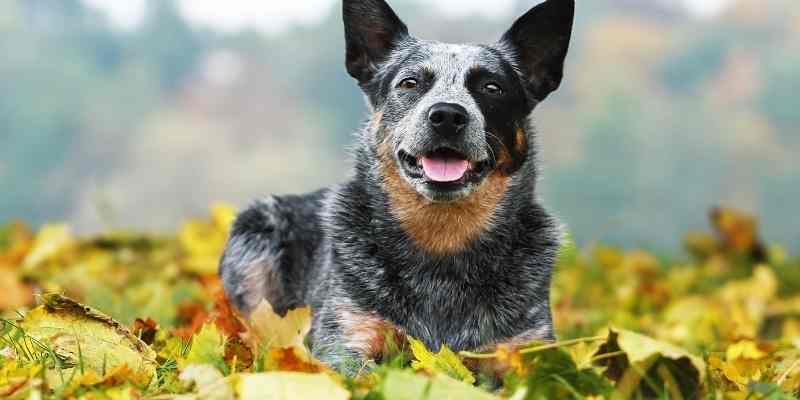
Bred to herd cattle under unfriendly circumstances, these smart animals face a mildly increased risk of deafness and dysplasia, but overall, they are extremely healthy during their lifetime. In fact, an ACD named Bluey actually lived to be 29 years old! And this achievement is registered in the Guinness World Record Book.

Chihuahua
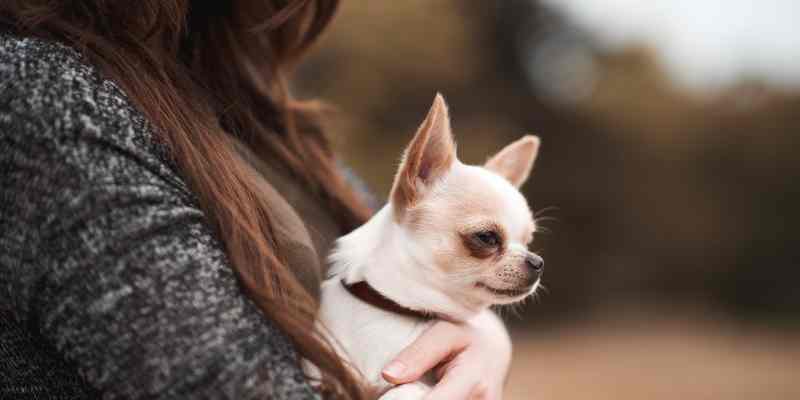
These small dogs (you may also remember that they made the healthiest toy breeds section) can attribute their longevity to not being susceptible to genetic disorders. Known for being the world’s smallest breed, Chihuahua’s are reliable, smart, and among the healthiest and longest living dog breeds with an average lifespan of 17 to 20 years.

Smartest and healthiest dog breeds
There is no easy way to rate dog intelligence.
As dogs researcher, Stanley Coren wrote back in the 1990s, “there is adaptive intelligence (i.e., figuring out things), working intelligence (i.e., following orders), and instinctive intelligence (i.e., inherent talent)-not to mention spatial intelligence, kinesthetic intelligence, interpersonal intelligence, and more.”
Coren presented the outcomes of a long study based on the data from 199 dog obedience judges in his book, .
The answers, he said, were remarkably consistent and here’s the main discovery: top-level – brightest dogs tend to learn a command rapidly (within 5 attempts) and obey at least in 95% of all the times.
So amongst the clear winners are some breeds that were mentioned earlier in other “healthiest’ sections: Border Collie, Poodle, German Shepherd, Bichon Frise, and Australian Cattle Dog.
Another intersection with the healthiest” list is English Springer Spaniel, a loving and vigorous breed.
English Springer Spaniel
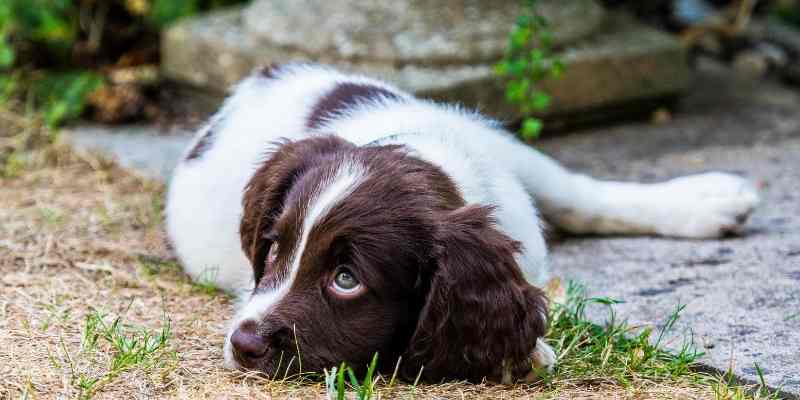
While some members of this breed have minor health issues with eyes issues, generally the Springer Spaniel has very few prevalent genetic diseases and can live up to 14 years. They love being with their owners, and they just want to play all the time. These dogs are highly obedient and straightforward to train.
We have more bright dogs for you in our rating of smartest small dog breeds.

Cutest healthiest dog breeds
In my humble opinion, all dogs are cute. But here are some fantastic healthiest breeds that didn’t fit into any other categories. But definitely worth mentioning in this rating.
Alaskan Malamut
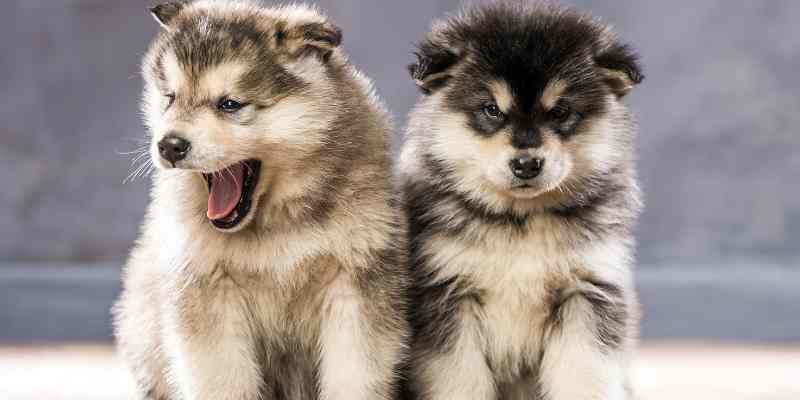
Malamutes are friendly and playful animals. They prefer cold temperatures and famous for their ability to “speak.” They enjoy climbing and roaming, which is why you need a tall, sturdy enclosure to keep this pup protected. This breed is excellent with kids, but it doesn’t do well with other pets. These animals can live for about 13 years if they are well cared for.
Shiba Inu

Shibas are medium sized dogs and can be threatening if they are not well-trained during puppyhood. This breed does not do well with children or other animals because they are very territorial. They look like young cousins of foxes, and they are too pretty healthy. This active and sturdy breed does not fall victim to many genetic health issues and has a decently lengthy and disease-free lifespan for about 16 years.
Shetland Sheepdog
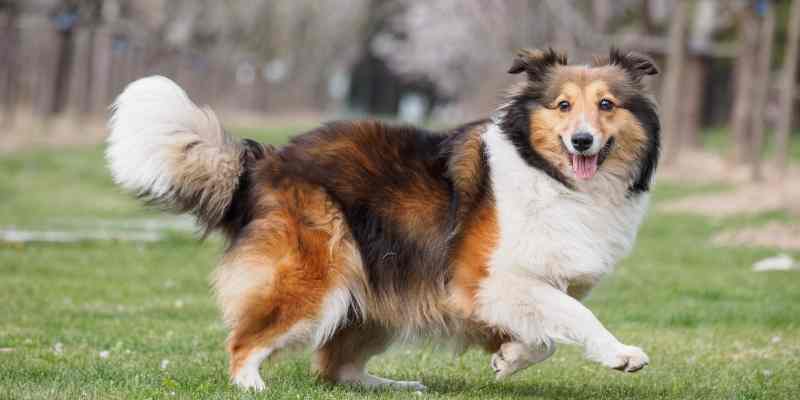
A medium-sized breed that shares specific genetic characteristics with the Collie, along with its looks. The Shetland Sheepdog is a working breed, very loyal, and affectionate toward its family.
They are brilliant and rarely bark, never chew on your shoes/furniture, and are known to prefer to stay at home instead of running away. This healthy pup will make a significant part of the family within the course of its life that lasts for 12-14 years.
Siberian husky
Intelligent Siberian Husky Shirt. Get it here.
The only thing that is cuter than an adorable husky is a bunch of them. If you are considering to get one – be prepared for its bursting energy. This medium-sized dog known for its skills as a sled and racing dog. The breed is almost healthy compared to other dogs of the same frame. And on average Husky lifespan is about 11 to 13 years.

Healthiest dog breeds that don’t shed
On top of Poodles, Havanese and Labradoodle, Greyhounds are also amongst the healthiest low shedding breeds.
Greyhound
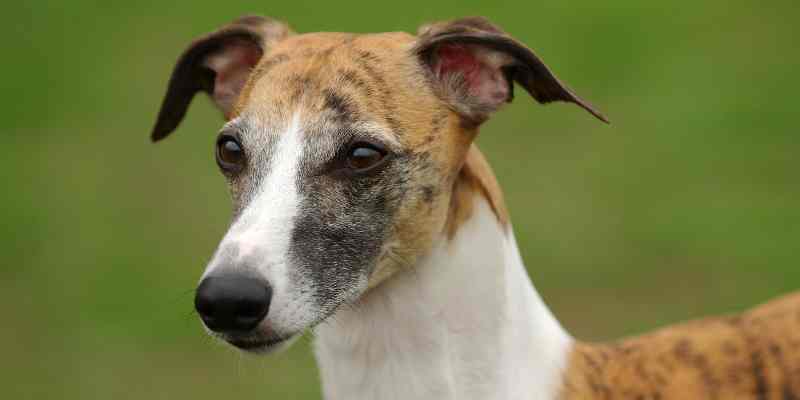
Perhaps it is the most straightforward breed of all to groom. They shed no hair and only need a towel rubdown to maintain their good silky coats shiny. Although since their hair is so short, they are not dealing well with the cold. Besides that, Greyhounds are some of the healthiest animals in the globe and can live up to about 13 years.
If you are seriously interested in low shedding dog breeds don’t miss our guide on the subject.

Healthiest dog breeds that don’t shed and stay small
Bichon Frise
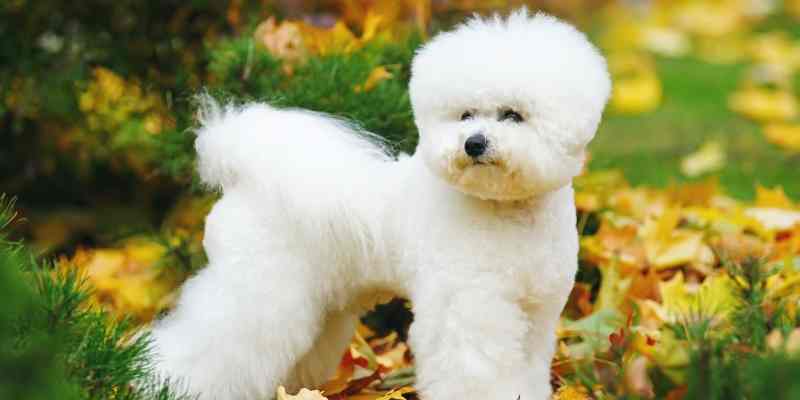
Bichon Frise is among the healthiest dog breed that looks exactly like a plush toy. They are susceptible to allergies, but the Bichon Frise has very little common health problems. Playful, curious, and suitable for anyone suffering from allergies, this breed lives for as long as 15 years and will not require to visit the vet frequently.
Miniature Schnauzer
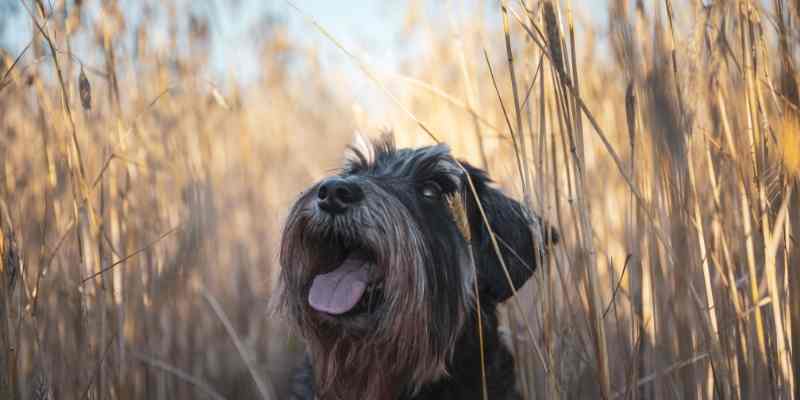
Miniature Schnauzers is an active and smart breed. Lately, they became more popular due to their character and hypoallergenic coats. Although they need frequent grooming, they rarely shed. It’s a great indoor dog that makes a reliable member of the family. Its sturdy body and courageous attitude contribute to its lifespan of 15 years.

Healthiest dog breeds that don’t bark
Azawakh
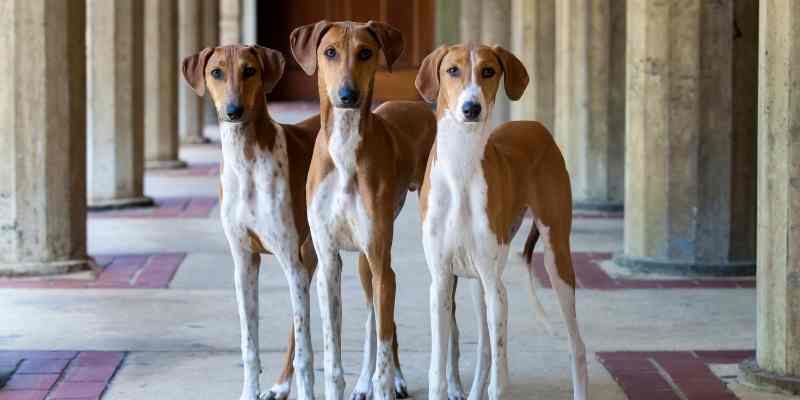
Azawakhs are very quiet dogs and rarely bark. They don’t like cats and they don’t get along with loud children, but they’re devoted to their master and want to hang out with them as much time as possible, which is why they can be a great indoor pet. They are generally healthy with the typical lifespan of 11 years.
Whippets
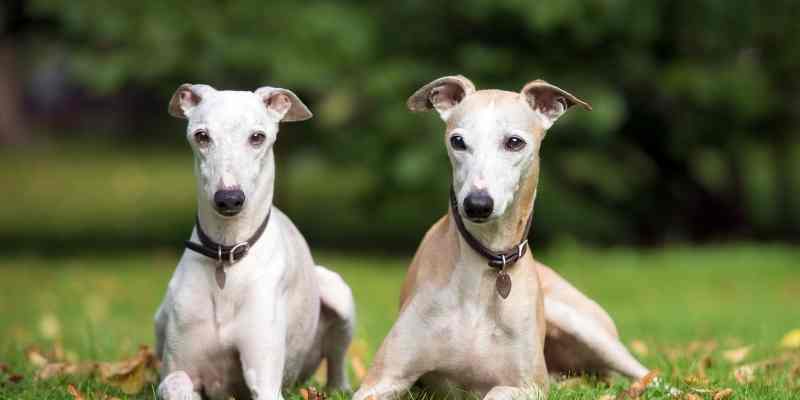
Whippets are another “barkless” dog. Originated from Greyhounds Whippets are sturdy and strong, with a lifespan of 12 to 15 years and little probability of getting seriously sick. Just be sure to keep him warm their low body fat means they get cold quickly.
Basenjis

Basenjis has been around for generations. They are known as the’ barkless’ dog because they rarely bark, making them ideal for living in an apartment. They are very energetic dogs and rarely shed. These animals can live up to about 12-15 years if well cared for and are definitely amongst the breeds with the least health issues.

Least healthy dog breeds
While we’ve discussed the healthiest, let’s have a look at the breeds that will require more meetings with vets. I am keeping the list short only including some of the most popular kinds of dogs just to give you a heads up.
Golden Retrievers

Goldens are some of the canine world’s largest sweethearts, but these cuties are sadly prone to cancer. What you can do to assist your golden out is to decrease their exposure to environmental variables such as air pollution and cigarette smoke as much as you can.
Also, Golden Retrievers are susceptible to a multitude of health problems that can be mitigated by a veterinarian’s screening of the heart, thyroid, eye, hip, and elbow. These conditions include lymphoma, canine hip dysplasia (CHD), hemangiosarcoma, various skin illnesses, and more.
If you don’t care and still considering this breed for adoption check our guide on how easy are golden retrievers to train.
Pugs
Pug face stickers. Get it here.
Those flat faces may be cute, but also a reason for the whole bouquet of various health conditions, including respiratory system and eye issues. Their flat snouts limit airflow, making it challenging for them to breathe, particularly after training (which in turn causes many pugs to get chubby). So be sure you have a reliable vet on speed dial if you have a Pug at home.
Learn more on how long do pugs live and what to do to increase pug’s life expectancy in this post.
Shih Tzus
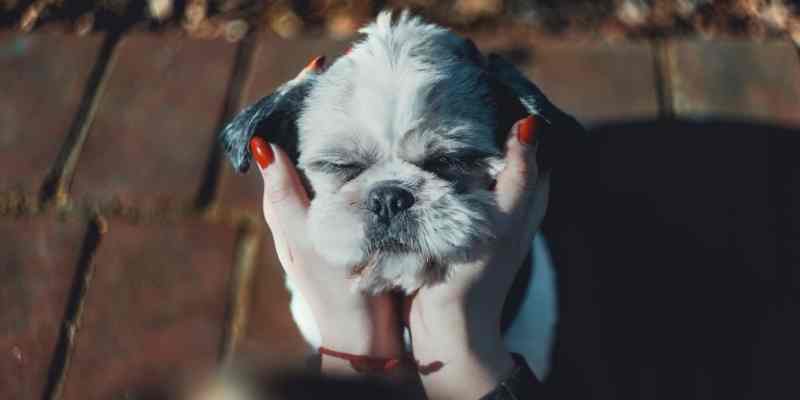
Shih Tzus would prefer spending their days relaxing on pillows and eating treats than doing something active. After all, they have unstable kneecaps. Additionally, Shih Tzus suffers from many of the same health problems as other short-muzzled races, such as respiratory problems and are at high risk of stroke.
Shih Tzus also suffers from a multitude of eye problems owing to their bulgy eyes. Among these eye problems are infections, Epiphora, Corneal Ulcers, etc.
Still want this breed? Check our guide on nitty-gritty of Shih Tzu potty training.
Newfoundlands
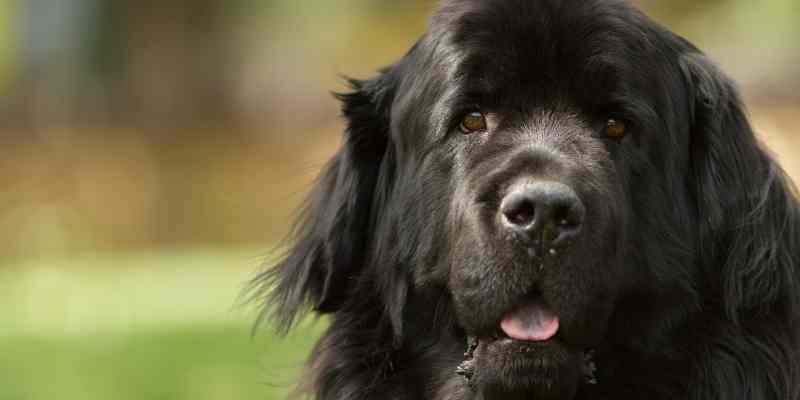
Newfoundland is a gentle giant with a smart look – they are very friendly with people and make a fantastic family dog. Like many big breed dogs (Newfoundlands can weigh up to 150 pounds), they tend to come up with a substantial amount of health issues. Unfortunately, these mild giants are also prone to canine hip dysplasia, cystinuria, cruciate ligament rupture, and Subvalvular Aortic Stenosis.
Basset Hounds
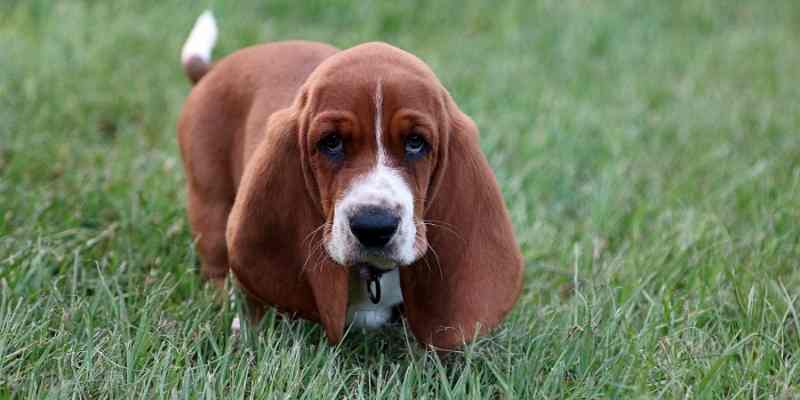
It’s difficult not to fall in love with a Basset Hound. However, these cute pups are susceptible to joint problems along with Von Willebrand’s blood clotting disease and some serious bloats too.
Fortunately, many of these circumstances can be managed with adequate precautionary and maintenance care. But still, if you are considering adopting or purchasing a purebred Basset Hounds, be sure that you are aware of all the possible health issues involved and that you’ll be willing to spend some substantial sums of money on fixing it in case they occur.
Thanks for the blog graphics: Canva.com


